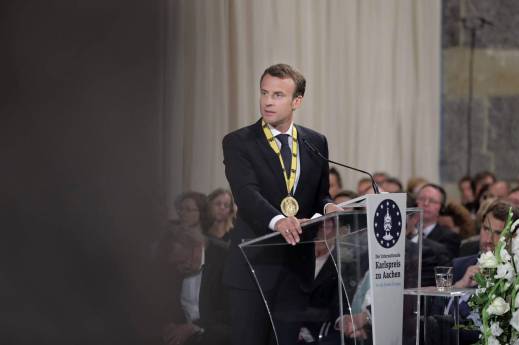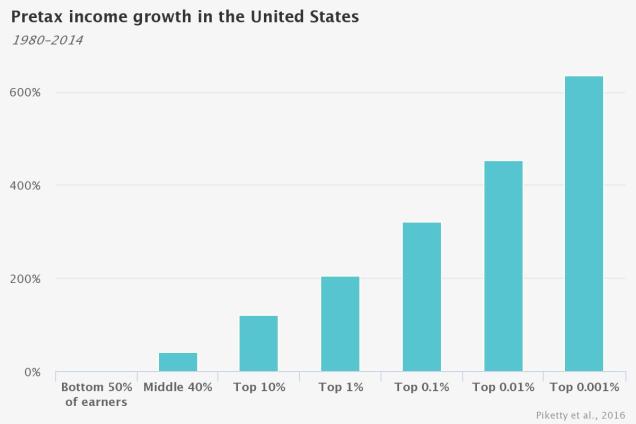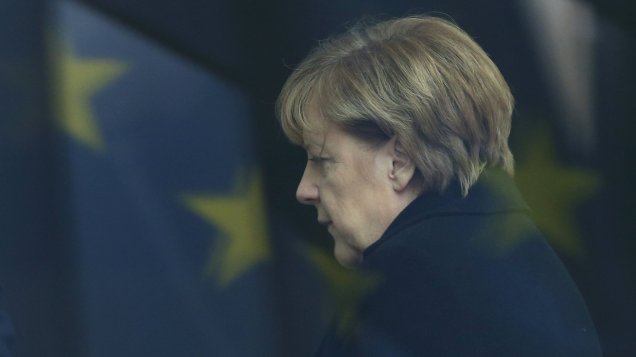
Since June 23, 2016, the United Kingdom has been confronting a substantial task to leave the European Union after decades of deep cooperation and integration. Over the last two years, the UK political elite, Tories and Labor alike, has demonstrated an absolute lack of imagination and illustrated the inability to think beyond their wishes of a return to an illusory lost exceptionalism. Three weeks prior the fatidic deadline of March 29, 2019, the British political elite is unable to decide on what is next for the UK, a soft Brexit (based on the agreed terms between the May government and the EU), a hard Brexit (no deal), a revocation of Article 50, or an extension of the Article 50. On March 12, the House of Commons rejected the government’s deal, followed on March 13 by a rejection of a no-deal Brexit paving the way for a potential request for a delay.
A delay for what? And towards what outcome? The UK and EU agreed back on November 14, 2018 on two documents: the agreement on the orderly withdrawal of the UK from the EU and the Joint Political Declaration on the framework of future relationship. One of the most contentious points for the UK in the withdrawal agreement is the third Protocol concerning Ireland and North Ireland known as “backstop,” agreeing to create an EU-UK single customs territory. The backstop is “an apt paradox for a problem that may not have a solution.” The backstop would keep the UK in both the customs union and the single market until at least 2020 during which Brussels and London would negotiate the terms of a trade relationship.
The Brexit vote was based on a series of lies and political manipulations over the relationship between the UK and the EU. The UK has demonstrated over its decades in the Union its ability to control sovereignty in areas considered of national sovereignty such as the national currency, immigration and judiciary affairs, and so forth. The UK used its opt-out rights in core competencies. The debate prior to the referendum was tailored around immigration/borders, supposedly high cost of the EU membership (money to be utilized to the Health and Human Services), and national prestige allowing the UK to reestablish its grandeur internationally.
Two years later, the illusion of a positive outcome, potentially being a hard Brexit, remains as a possibility. The lack of imagination has been so visible throughout the process and since the end of the UK-EU negotiations. The last four months have exposed the inability of a political elite to think, govern and lead. It has been months of political talks and votes in London with a Prime Minister losing time after time votes on the same document thinking that the outcome of a new vote on a same document could have a different ending. Furthermore, PM May has failed to lead and unite her party, let alone the nation, to agree on the terms of a departure, yet manages to survive no confidence vote and hold her position. This demonstrates another level of political folly. At what point the House of Commons massively rejecting May’s deal, on two occasions, think that keeping the same captain defending the same deal would lead to a different outcome.
In a case of a decision to extend the Article 50 and a reopening of the negotiations, two questions arise. First, are the 27 EU Member States convinced that new rounds of negotiation will lead to a different outcome? PM May said it clearly, “the EU will want to know what use we will make of such an extension.” And second, will the negotiating team from the UK be different a different one bringing new propositions with regards to Northern Ireland to the table? In the current deal, the EU has rightfully protected one of its member states, Ireland, and the core of the Union, the common market. It is quite unimaginable to have the EU undermining one of its members to accommodate one exiting. Furthermore, seeking an extension to the negotiations could poison the debate ahead of the European elections on May 23-26 and require the UK to hold a campaign for the European Parliament elections.
Now the organization of a new referendum on Brexit to put back the decision in the hands of the citizens would send a mix message. The new referendum would be less about democracy and more about the political elite hiding its inabilities to lead and govern behind another popular vote. Regardless of the outcome of the 2016 vote, the government had a mandate and failed to deliver, which has become a common trend across the transatlantic community. After three years of toxic rhetoric, the outcome of new referendum tipping in favor of a remain vote could be damaging in the long-term for domestic and European politics. Can the UK strive back in the EU after this tumultuous period like nothing had ever happened? An optimist could argue that the EU, the 27 capitals and the UK have learnt the lessons being on the edge of a precipice and are willing to move head with substantial reforms by deepening the integration process. Why not?
Theresa May back in 2016 said, “Brexit means Brexit.” The initial understanding was that the UK will be leaving at the end of the two-year period. Today, “Brexit means Brexit” illustrates a total lack of imagination, of leadership and policy-making. Over two years, the UK has been unable to think about its own future outside the EU. How can the UK be in any position of strength in negotiating future relationships with world actors? “forging a new role for Britain in the world”? and to legislate in re-drafting and voting on a new set of rules and laws post-EU? “Brexit means Brexit” has become the mantra of a lost nation.


 By looking at the trends and rhetorics (which can shift very quickly as demonstrated by the change of position by Trump towards the North Korean dictator), a trade war is quite an eventuality. For the EU, trade has been the core dimension of its external policy and international presence. The EU sees multilateralism and free trade as one of its most successful policies. Furthermore, the EU is at a crossroad with the continuous rise of populist forces gaining traction in core EU countries, such as recently Italy. The EU ought to defend its interests and cannot cave in to foreign pressures, otherwise it would play in the hands of the Orban, Salvini and Le Pen of Europe. And last, the European market is one of the richest, largest, developed and influential in the world. By the weight of its market, the EU shall not shy away from direct confrontation with the US. As per Charlemagne of The Economist, the EU has three strategies in hand to chose from: capitulation, resilience, and containment. Resilience is the most likely strategy at this period of time.
By looking at the trends and rhetorics (which can shift very quickly as demonstrated by the change of position by Trump towards the North Korean dictator), a trade war is quite an eventuality. For the EU, trade has been the core dimension of its external policy and international presence. The EU sees multilateralism and free trade as one of its most successful policies. Furthermore, the EU is at a crossroad with the continuous rise of populist forces gaining traction in core EU countries, such as recently Italy. The EU ought to defend its interests and cannot cave in to foreign pressures, otherwise it would play in the hands of the Orban, Salvini and Le Pen of Europe. And last, the European market is one of the richest, largest, developed and influential in the world. By the weight of its market, the EU shall not shy away from direct confrontation with the US. As per Charlemagne of The Economist, the EU has three strategies in hand to chose from: capitulation, resilience, and containment. Resilience is the most likely strategy at this period of time.
 network of institutions and regimes as a platform of discussion and interaction among states. These multilateral platforms permit to align interests, deepen cooperation and coordination and design mechanisms to implement and enforce agreements and policies. One country, as economically and militarily powerful as the US today, cannot solve any of these issues alone. Third, in his quest to greatness (almost like Don Quixote) Donald Trump will simply undermine the status, influence and power of the US and downgrade it to a superpower. Ironically, a long-term decline in influence and power will require the US to increase its alliances to balance its progressive global decline. That is the story of past hegemons. Fourth, this abrasive style may alienate once and for all American allies. The
network of institutions and regimes as a platform of discussion and interaction among states. These multilateral platforms permit to align interests, deepen cooperation and coordination and design mechanisms to implement and enforce agreements and policies. One country, as economically and militarily powerful as the US today, cannot solve any of these issues alone. Third, in his quest to greatness (almost like Don Quixote) Donald Trump will simply undermine the status, influence and power of the US and downgrade it to a superpower. Ironically, a long-term decline in influence and power will require the US to increase its alliances to balance its progressive global decline. That is the story of past hegemons. Fourth, this abrasive style may alienate once and for all American allies. The 
 interventions made by his predecessor and favored in fact the used of targeted operations (for better or worst). Under his two mandates, President Obama managed to finalize the COP-21 agreement, the JCPOA, rebuild transatlantic relations (one attempt was the Transatlantic Trade and Investment Partnership) and solidifying the US position in Asia with the Trans-Pacific Partnership (TPP). President Obama’s accomplishments had united the right and the Republican party and fuelled the message of candidate Trump on the campaign trail based on some sort of anti-globalist and anti-foreign policy elite defending the liberal order.
interventions made by his predecessor and favored in fact the used of targeted operations (for better or worst). Under his two mandates, President Obama managed to finalize the COP-21 agreement, the JCPOA, rebuild transatlantic relations (one attempt was the Transatlantic Trade and Investment Partnership) and solidifying the US position in Asia with the Trans-Pacific Partnership (TPP). President Obama’s accomplishments had united the right and the Republican party and fuelled the message of candidate Trump on the campaign trail based on some sort of anti-globalist and anti-foreign policy elite defending the liberal order.
 question: “Are we accepting the rule of the other or the tyranny of the events or are we making a choice by ourselves of a deep autonomy and yes, of a European sovereignty?” The US-EU relations are deep and have evolved over time. Since the 1950s, Washington has called on Europeans to build up their power and influence, and Europe has struggled with such task. Now with the current administration, the EU and Europeans are facing a complex conundrum: developing a tough and united position against the Trump administration without damaging its relationship with the United States.
question: “Are we accepting the rule of the other or the tyranny of the events or are we making a choice by ourselves of a deep autonomy and yes, of a European sovereignty?” The US-EU relations are deep and have evolved over time. Since the 1950s, Washington has called on Europeans to build up their power and influence, and Europe has struggled with such task. Now with the current administration, the EU and Europeans are facing a complex conundrum: developing a tough and united position against the Trump administration without damaging its relationship with the United States.











 All these recent issues illustrate considerable challenges for the future unity of the bloc, but as well expose major systemic and domestic failures. These issues related to ethno-nationalism, populism, secessionist desires are ramping and require stronger domestic initiatives to shrink economic and social inequalities, address sub-national identity and cultural fears, and bring back a certain civility in the political discourse. At the EU level, these crises illustrate the a growing disconnect between Brussels and the capitals. Fascinating enough the EU is being criticized for being too little integrated on issues of migration and being too passive on questions of regional secession, but the EU does always not have a mandate to dictate policies and rules in certain areas of political life.
All these recent issues illustrate considerable challenges for the future unity of the bloc, but as well expose major systemic and domestic failures. These issues related to ethno-nationalism, populism, secessionist desires are ramping and require stronger domestic initiatives to shrink economic and social inequalities, address sub-national identity and cultural fears, and bring back a certain civility in the political discourse. At the EU level, these crises illustrate the a growing disconnect between Brussels and the capitals. Fascinating enough the EU is being criticized for being too little integrated on issues of migration and being too passive on questions of regional secession, but the EU does always not have a mandate to dictate policies and rules in certain areas of political life.

 tendencies: painful collective memories politicized by a coalition reaching the regional parliament thanks to protest votes against Madrid’s policies; all this in combination with a disastrous management of the Catalonian issue by the central government (including the King Felipe VI). Plus, Barcelona took advantage of the weakness of the chief of central government, Mariano Rajoy, who needed two general elections and almost a year to form a minority government.
tendencies: painful collective memories politicized by a coalition reaching the regional parliament thanks to protest votes against Madrid’s policies; all this in combination with a disastrous management of the Catalonian issue by the central government (including the King Felipe VI). Plus, Barcelona took advantage of the weakness of the chief of central government, Mariano Rajoy, who needed two general elections and almost a year to form a minority government.